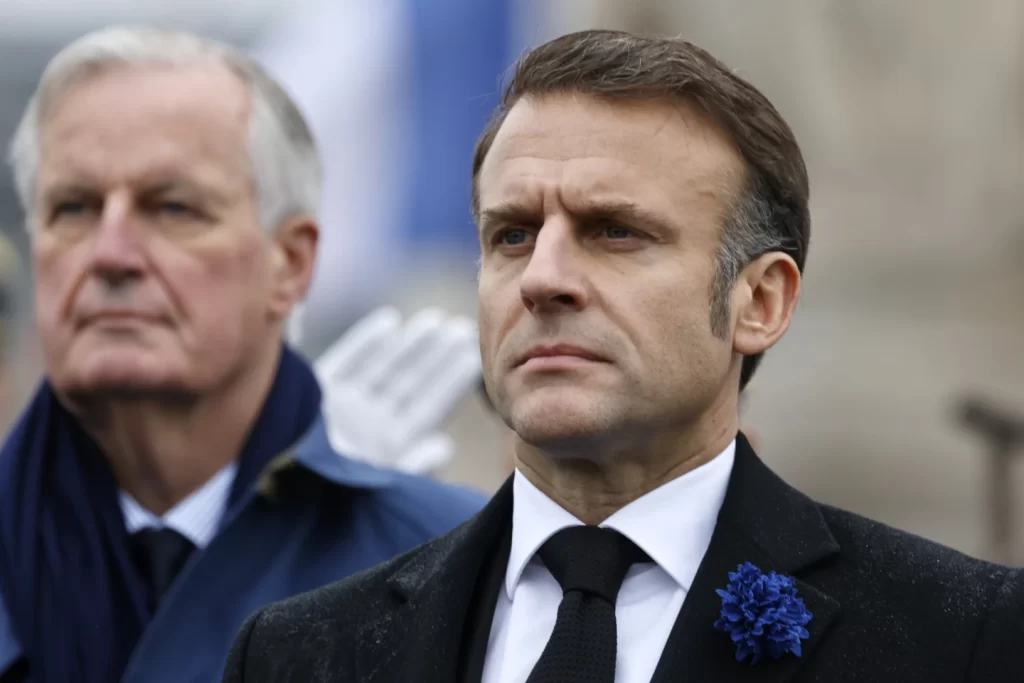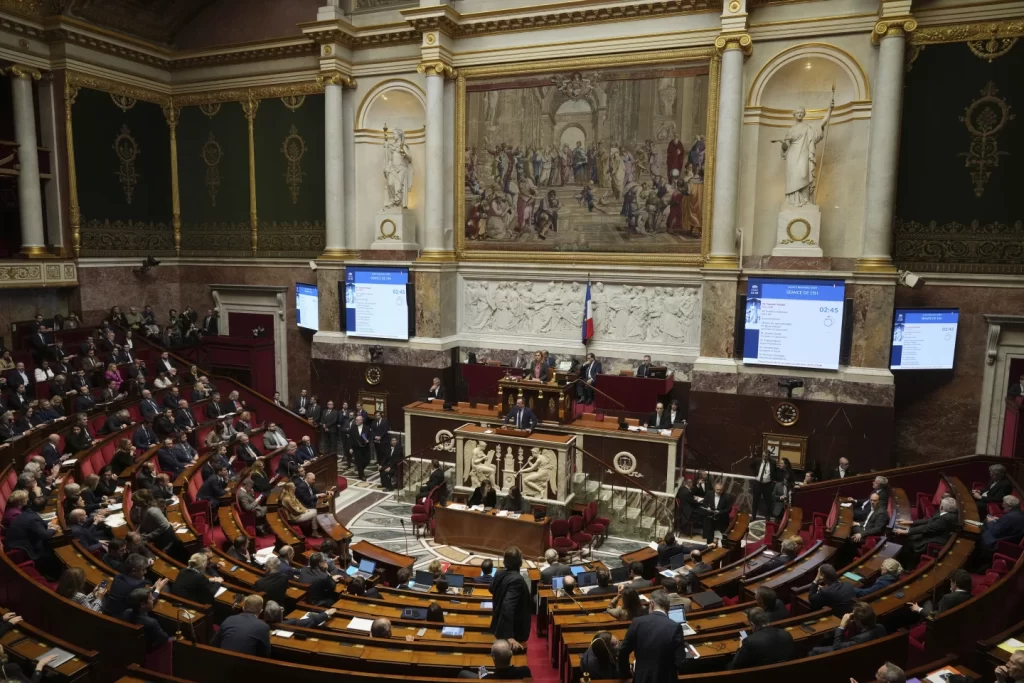President Emmanuel Macron will address the French nation Thursday evening, following a historic no-confidence vote that ousted Prime Minister Michel Barnier and left France facing its most severe political crisis in decades.

Barnier formally resigned Thursday morning at the Elysée Palace after the National Assembly passed the no-confidence motion with 331 votes, ending his tenure as France’s shortest-serving prime minister in modern history after just three months.
“I recommend he decide rapidly on a new prime minister,” National Assembly President Yaël Braun-Pivet urged on France Inter radio. “There must not be any political hesitation. We need a leader who can speak to everyone and work to pass a new budget bill.”
The crisis has energized opposition leaders, with far-left France Unbowed leader Manuel Bompard calling for Macron’s resignation on BFM TV. National Rally leader Marine Le Pen warned of mounting pressure on the president, though Macron has dismissed resignation calls, stating, “I was elected to serve until 2027, and I will fulfill that mandate.”

The political turmoil has raised economic concerns, with Moody’s warning that the government’s collapse “reduces the likelihood of consolidating public finances.” Analysts fear France’s debt could reach 7% of GDP next year without reforms, while rising interest rates could further strain public finances.
Constitutional constraints prevent new legislative elections until July, potentially creating an extended period of political gridlock as Macron seeks to form a new government capable of working with a divided parliament.


